A kettle that collects grip data to measure frailty, a new insulation material made from feather waste, a wearable FinTech personal budget management solution, and a medical icon kit for disseminating medicine in low literacy areas are among the 25 innovations announced today as winners of the 2016 RSA Student Design Awards.
Now in its 92nd year, the RSA Student Design Awards is the longest running student design competition in the world, challenging young people across the globe to tackle real-world issues facing society, the environment and business. The competition is open to university students and new graduates from all disciplines, who can work individually or collaborate in teams to apply their skills in new ways; the winning entries this year show students using design in the context of social and economic innovation, sustainability and international development. A full list of the winning entries can be found below, and see our online Showcase for images of winning and commended work.
Callum Smith’s project ‘FrailTea’ responded to The Good Life brief, sponsored by Philips, and is the winner of the Philips Internship Award. FrailTea is a system for collecting and analysing grip data via daily kettle usage, which provides caregivers with an accurate daily picture of their elderly patients’ frailty statistics. Early identification of frailty allows for tailored care planning that enables elderly sufferers to live more independently, avoid potentially devastating trips and falls, and stay out of hospital.
The 2015/16 competition comprised 12 different briefs which we developed in partnership with industry sponsors from RBS, Airbnb, Unilever, Waitrose, Philips, GSK, Fazer, PriestmanGoode, The Eden Project, the Office for Disability Issues, BuroHappold Engineering, Springetts, Materials Council and Natracare. This year’s brief topics included designing ways to radically reducing food waste, empowering people to manage their money better, improving healthcare provision in Sub-Saharan Africa and designing more frugal and sustainable ways of bathing.
Thousands of students around the world tackled the briefs, and engaged with the RSA through our programme of briefing sessions, skills workshops, and online resources for participants. Over 900 students from 5 continents went onto submit their work into the competition. Their proposals were judged by leading designers and industry experts in a rigorous 2-stage process: anonymous offline shortlisting, followed by face to face interviews with finalists.
Poppy Crow won the Waitrose Internship Award for her project ‘It’s Great to Hydrate’, developed in response to the Waste Not, Want Not brief sponsored by Fazer. Poppy designed a three-step behaviour change campaign aiming to inform the public about how hydrating vegetables can help them keep for longer, and reduce food waste in the process.
It’s this combination of judging rigour, in depth engagement with students and explicit focus on design for social impact, along with the unique mix of benefits for winners, which sets the RSA Student Design Awards apart from other student competitions. This year over £32,000 of cash prizes and paid industry placements have been awarded to the winning entrants, who also receive a range of other benefits including complementary RSA Fellowship.
It’s amazing to see the impact that winning an award has on participants, both personally and professionally – it’s the start of the journey, and time and time again we see the experience shape winners’ aspirations and kick-start their careers. This year’s winners will go on to join RSA Student Design Awards alumni that includes luminaries like Apple Design Chief Sir Jonathan Ive, leading industrial designer Paul Priestman, renowned fashion designer Betty Jackson and GOV.UK mastermind Ben Terrett.
Jonathan Stannard responded to the AfricaPack brief, sponsored by GSK, and won the RSA Fellows’ Award for his entry ‘Medical Symbol Language Kit - a kit for pharmacies and/or individuals that includes posters, stickers, and instruction sheets to help people in areas with low-literacy to understand when, how and how much medicine to take’.
A full list of the winners is included below, and you can see images of all the winning and commended work in our Showcase. The 2016 Awards will be celebrated at a special ceremony, ‘Designing our Futures: The 2016 RSA Student Design Awards’, on 20th June at the RSA’s headquarters in London, including a keynote address by past RSA Award Winner and current Global VP of Advanced Innovation at Nike, Richard Clarke.
Congratulations to the thousands of students around the world who took part in this year's RSA Student Design Awards and to those shortlisted, commended and winning students who are using design as a force for good in designing our futures.
THE RSA STUDENT DESIGN AWARDS 2015/16 – FACTS AND FIGURES
- 12 briefs
- 906 entries
- 5 continents + 19 countries represented
- 25 winning projects
- £32,000 in cash prizes and paid placements awarded to winners
- Each entry is judged according to six criteria: social and environmental benefit, execution, research, design thinking, commercial awareness and magic.
FULL LIST OF 2016 AWARD WINNERS
CREATIVE CONDITIONS– Sponsored by RBS
Design and develop a compelling vision and business case for an environment or situation that prompts and fosters creative thinking
- WINNER OF THE RBS AWARD FOR THE BEST BUSINESS CASE
Alan MacFarlane & Mirna Maye, The National College of Art & Design, Dublin, Industrial Design
Watercooler: a community-based service designed to get people in Dublin into a creative mind-set and thinking more clearly. Through playful furniture, installations, workshops and ‘daily topics’, Watercooler helps to defocus your mind from the mundane every day, and spark the creative flow that exists within us all.
- WINNER OF THE RBS AWARD FOR THE BEST DESIGN PROJECT
Raluca Babau, University of Northampton, Interior Design
The Creative Satchel: a personalised flexible satchel that folds out to create an individualised workspace complete with technology to promote creativity and provide a sense of personal space in hot-desking workspaces.
THE GOOD LIFE – Sponsored by Philips
Empower people who live with long term, lifestyle-related health conditions to take a greater role in managing their own care
- WINNER OF THE PHILIPS INTERNSHIP AWARD
Callum Smith, Northumbria University, Design for Industry
FrailTea: a system for collecting and analysing grip data via daily kettle usage, which provides caregivers with an accurate daily picture of their elderly patients’ frailty statistics. Early identification of frailty allows for tailored care planning that enables elderly sufferers to live more independently, avoid potentially devastating trips and falls, and stay out of hospital.
- WINNER OF THE RSA FELLOWS’ AWARD
Melissa Casey, University of Lincoln, Graphic Design
Dharavi Diabetes Care: a campaign in India’s largest slum, Dharavi, that aims to raise awareness around foot care and empowers diabetes sufferers to identify the symptoms that can lead to gangrene and amputations (85% of which are preventable). The campaign is designed to run by the Mithi River, the sole source of water through the city that the majority of the population uses daily, and uses pictograms alongside text to overcome low levels of literacy in the area.
WASTE NOT, WANT NOT – Sponsored by Fazer, with additional support from Waitrose
Design a way to encourage and support individuals, households, businesses and/or communities to reduce food waste
- WINNER OF THE FAZER AWARD
Anthony Brown, University of Nottingham, Product Design and Manufacture
SI-LOW: a low-cost household grain storage unit designed to stop the post-harvest loss of grain commonly found in smallholder farming in Africa.
- WINNER OF THE WAITROSE INTERNSHIP AWARD
Poppy Crow, Northumbria University, Design for Industry
It’s great to hydrate: a three-step behaviour change campaign and practice aiming to inform the public about how hydrating vegetables can help them keep for longer and will encourage waste reduction in the process; the three steps are:
1. Poster campaign to raise awareness,
2. Hydration bags to change behaviour,
3. Sticker identification for suitable vegetables.
MIND YOUR MONEY – Sponsored by RBS
Design a way for people to improve their financial capability and manage their money better
- WINNER OF THE RBS AWARD
Jan Rosicky, Prague College, Graphic Design
‘M’: a wearable gadget and an app that autonomously tracks all expenses and segments them into spending categories without the user having to input the data, which is a major hurdle for young people using existing budget management apps. ‘M’ offers an alternative to contactless cards and aims to make abstract data easier to understand and use effectively.
- WINNER OF THE RSA FELLOWS’ AWARD
Jonny Jiang, Ji Hae Kim, Leopoldo Tacchini & Sungjin Hong, Royal College of Art, Service Design
The Compass: a chargeable banking service that helps family-owned SMEs work toward a more sustainable future, with both online and offline interactions to address key barriers to SME-bank interaction, namely trust, financing options, and strategic goals. The Compass aims to improve the financial literacy and trust in banks of the 87% of family-owned SMEs in the UK.
SUSTAINABLY CLEAN – Sponsored by Unilever
Design a product or system that allows people to wash and clean themselves using less water and/or lower water temperatures
- WINNER OF THE UNILEVER AWARD
Ahmed Salah, University of East London, Product Design
WUDU Water Saver: a product that allows Muslims to practice the obligatory cleansing ritual of Wudu, while also reducing personal water consumption but still allowing enough water to wash the face, arms and feet during the ritual.
FAIR SHARE – Sponsored by Airbnb
Design a way to keep the sharing economy fair so more people will participate in it
- WINNER OF THE AIRBNB AWARD
Daniel Hands, University of Lincoln, Graphic Design
The Sharing Club: the Union for people who don’t have a Union: a service design proposal for a new ‘union’ for people who participate in the sharing economy where they have more power to address issues; the aim is the participants in the sharing economy are valued more as employees rather than disposable assets.
- WINNER OF THE AIRBNB AWARD
Leah Witton, Tom Williams, & Ella Taylor, University of the West of England, Graphic Design
Dare to Share: a book that aids teenagers and those aged 18-30 in their sharing mentality; the book aims to increase awareness of how, when and where people share or don’t share and further aims to propel interest in the sharing economy.
AFRICAPACK – Sponsored by GSK
Improve the way medicines are protected, dispensed, distributed and/or taken in Sub-Saharan Africa
- WINNER OF THE GSK INTERNSHIP AWARD
Megan Sands & Sarah Twaddell, National College of Art & Design (Dublin), Industrial Design
Positive Future: a packaging design, awareness campaign and mobile network support system for patients taking Triumeq anti-retroviral medicine in Sub-Saharan Africa.
- WINNER OF THE RSA FELLOWS’ AWARD
Jonathan Stannard, Blackpool & the Flyde College, Graphic Design
Medical Symbol Language Kit: a kit for pharmacies and/or individuals that includes posters, stickers, and instruction sheets to help people in areas with low-literacy to understand when, how and how much medicine to take.
PROJECT RURAL – Sponsored by PriestmanGoode & The Eden Project
Design a product, system or campaign that is specifically intended to help people and communities in rural areas to flourish
- WINNER OF THE PRIESTMANGOODE INTERNSHIP AWARD
Sam Troop, Loughborough University, Industrial Design & Technology
Eco-Grill: a safe, efficient and sustainable portable cooker that responds to problems arising from barbequing in the New Forest. Developed using circular design principles, Eco-Grill uses locally produced charcoal and has a flameless ignition.
- WINNER OF THE EDEN PROJECT AWARD
Kenneth Lee, Hong Kong Design Institute (accredited by Birmingham City University), Product Design
50/50: a biodegradable container designed to help amateur farmers to carry their crops by hand. The conical container is made from areca leaf which is durable, environmentally friendly, and absorbs moisture to keep produce fresh for longer.
INCLUSIVE CITIES – Sponsored by the Office for Disability Issues (ODI)
Design an inclusive building, place, or space so that it is easily and comfortably accessed and used by everyone
- WINNER OF THE ODI AWARD
Deborah Abidakun, De Montfort University, Interior Design
A More Inclusive Pedestrian Wayfinding System: a wayfinding system building on the existing ‘Legible London’ system that uses universal design principles and simple way-finding techniques to create an enhanced and more user-friendly pedestrian navigation system for all users.
- WINNER OF THE BUROHAPPOLD INTERNSHIP AWARD
Maryia Virshych, Centro Universitario de Diseno de Barcelona, Design Research
Sign Out Loud: an online and sticker campaign that highlights the communication needs of people who are deaf, deafened or hard-of-hearing by encouraging the identification and registration of places that are – or are not – accessible and comfortable, evaluating how the facilities and the people who work in them demonstrate awareness of need, attitude and general hospitality to the deaf community.
ONE MAN’S WASTE – Sponsored by the Patricia Tindale Legacy & the Eddie Squires Legacy, in partnership with the Materials Council and with additional support from Springetts and Natracare
Design a way to help eliminate the concept of waste within developed societies by promoting it as a valuable material resource
- WINNER OF THE SPRINGETTS INTERNSHIP AWARD
Hoda Khoja, Winchester School of Art at the University of Southampton, Graphic Arts
Iro: a new material developed from reprocessed paint and ink waste that is used to make furniture, jewellery, interior finishes and covers.
- WINNER OF THE NATRACARE AWARD
Elena Dieckmann, Royal College of Art, Innovation in Design Engineering & Ryan Robinson, Imperial College London, Biology
Aeropowder: a novel insulation material made from feather waste material. It is has the same performance as synthetic insulation products but is more eco-friendly as it uses a waste product. A range of different products and materials made from feather waste material are currently in development.
- WINNER OF THE EDDIE SQUIRES AWARD
Simon Van Pottelbergh, LUCA School of Arts (Belgium), Product Design
Plyjeans: a new material made from waste denim that utilises its existing fabric structure. Plyjeans comprises stacked layers of denim from old jeans that can be cut, milled, and bent to make furniture and other objects – at the end of their life, these can be shredded and the fibres reused.
- WINNER OF THE EDDIE SQUIRES AWARD
Iqra Arshid & Julie Mapes, Duncan of Jordanstone College of Art & Design at the University of Dundee, Textile Design
New Life Knits: a knitwear range made from recycled yarn combined with stronger fabrics, and strengthened in high-wear areas (such as the elbows) to make it more durable. The knit products retain desirable aesthetics whilst having a higher quality and longer life than mainstream attire.
MAKING IT INCLUSIVE – Sponsored by an anonymous donor
Design a way to enable more people to enjoy the benefits of making
- WINNER OF THE RSA AWARD
Gabrielle Leighton, Nottingham Trent University, Graphic Design
Playmake: a custom tablet app for 7 – 12 year-old children on the autistic spectrum, who also suffer from sensory integration difficulties. The Playmake system generates tailored crafts and activities, specifically based on the individual’s sensory needs, which help the child become more expressive, independent, adaptable and sociable.
- WINNER OF THE RSA FELLOWS’ AWARD
Sam Hemming, Loughborough University, Industrial Design
Maker Blocks: an innovative and challenging play experience that transports physical toy creations into the virtual world. Targeted at 7 – 12 year-olds, Maker Blocks is a virtual city building game played on a tablet device, but requiring players to use physical making skills to construct things that then feed back into the virtual game. Players can see their friends’ virtual creations or build cities together, and the physical building aspect allows parents to interact with their children through making.
MOVING PICTURES – Sponsored by The Bryan Foster Legacy to the RSA
Conceive and produce an animation to accompany one of two selected audio files that will clarify, energise and illuminate the content
- WINNER OF THE FOSTER AWARD
Patrick Horan, Limerick School of Art & Design, Visual Communications
A Brighter Future: an animation bringing together various styles – hand drawing, stop motion and more – that revolves around the naivety of childlike drawings and how this plays an important part in building bigger and brighter futures. (‘Building Possible Futures’ audio).
- WINNER OF THE FOSTER AWARD
Sharon Ross, Ulster University, Belfast, Graphic Design & Illustration
Painterly Flow: a painterly animation based on principles of minimalism, reduction and transition that aims to inspire people to think further about issues to do with climate change and modern society.
Full details of each brief, and an online showcase of winning entries, are available on the RSA Student Design Awards website. Follow @RSADesignAwards for updates from the SDA team.
Related articles
-
Three ways to engage students in circular design
Nat Ortiz
Nat Ortiz shares insights from a series of workshops with design students to explore fashion in a circular economy.
-
Calling all creative problem solvers
Nat Ortiz
Our 2019/20 Student Design Awards briefs have launched! Nine real-world challenges rooted in big societal problems, open to higher education students and recent graduates around the world.
-
6 steps for designing impactful solutions
Russell Beard
Kinneir Dufort’s Head of Design & Innovation Russell Beard on the 6 things you need for a great design solution.
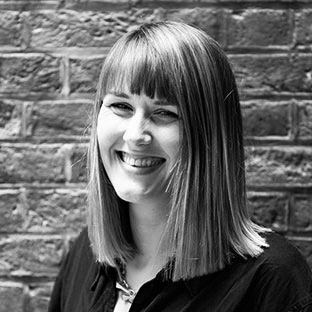
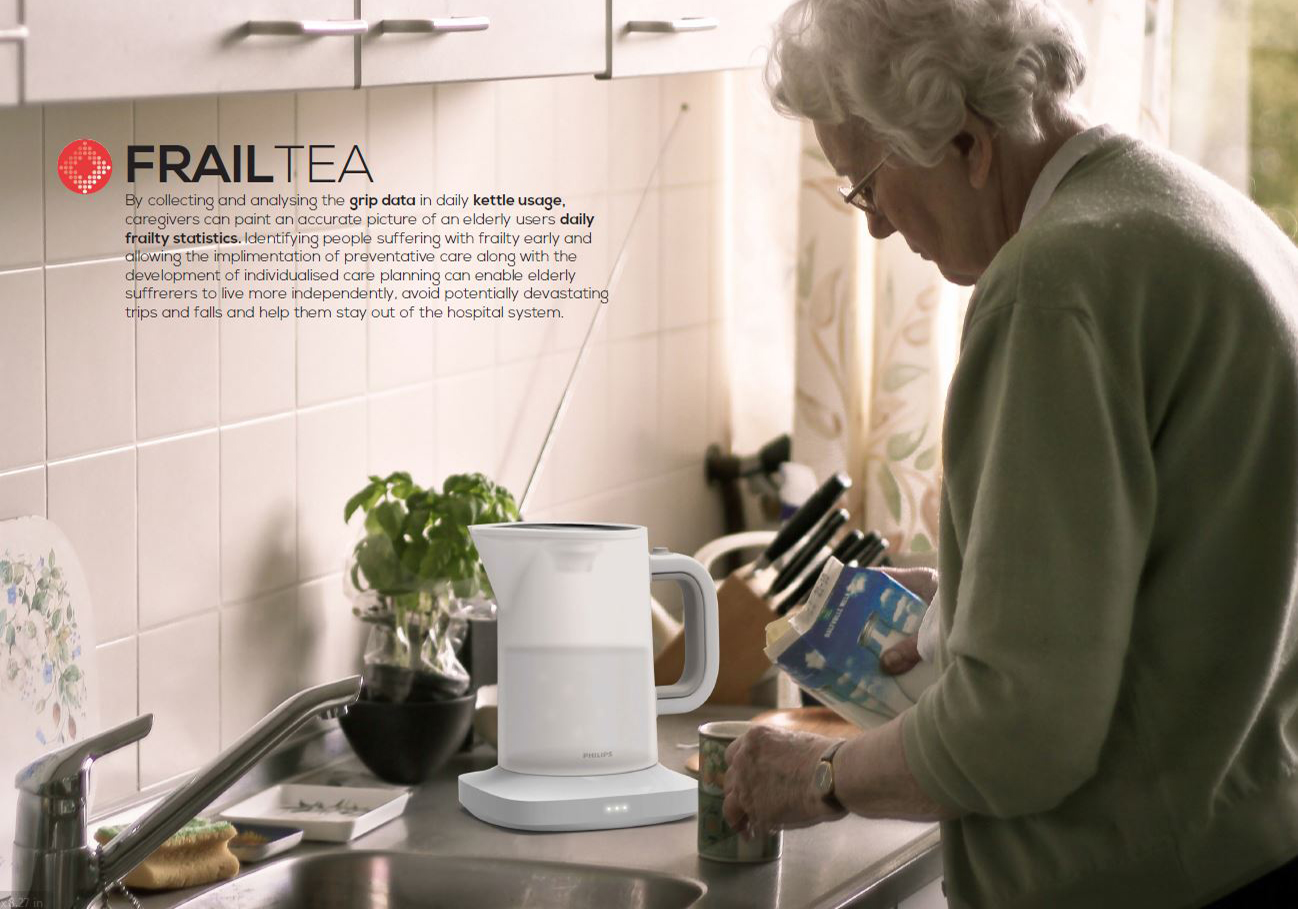
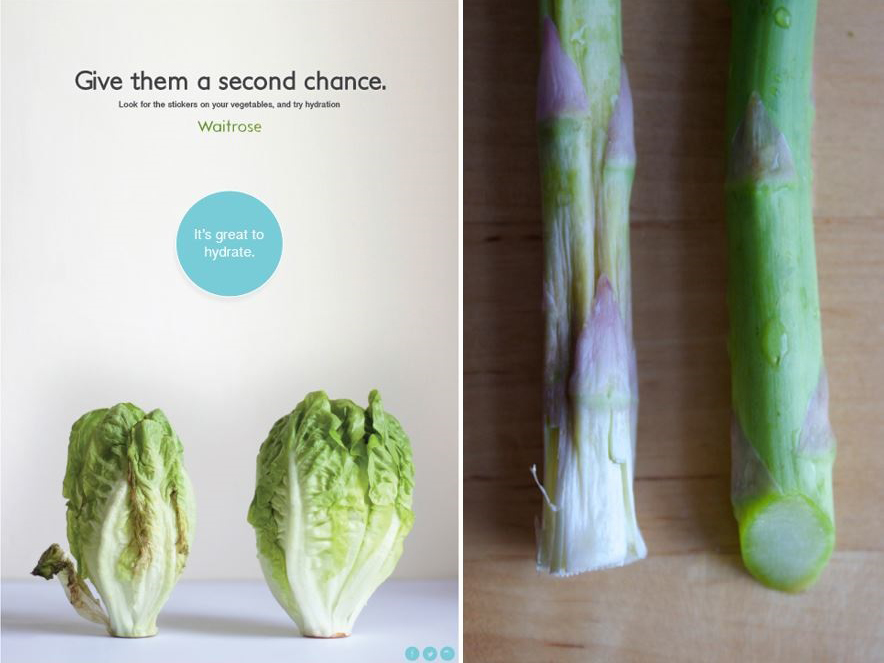
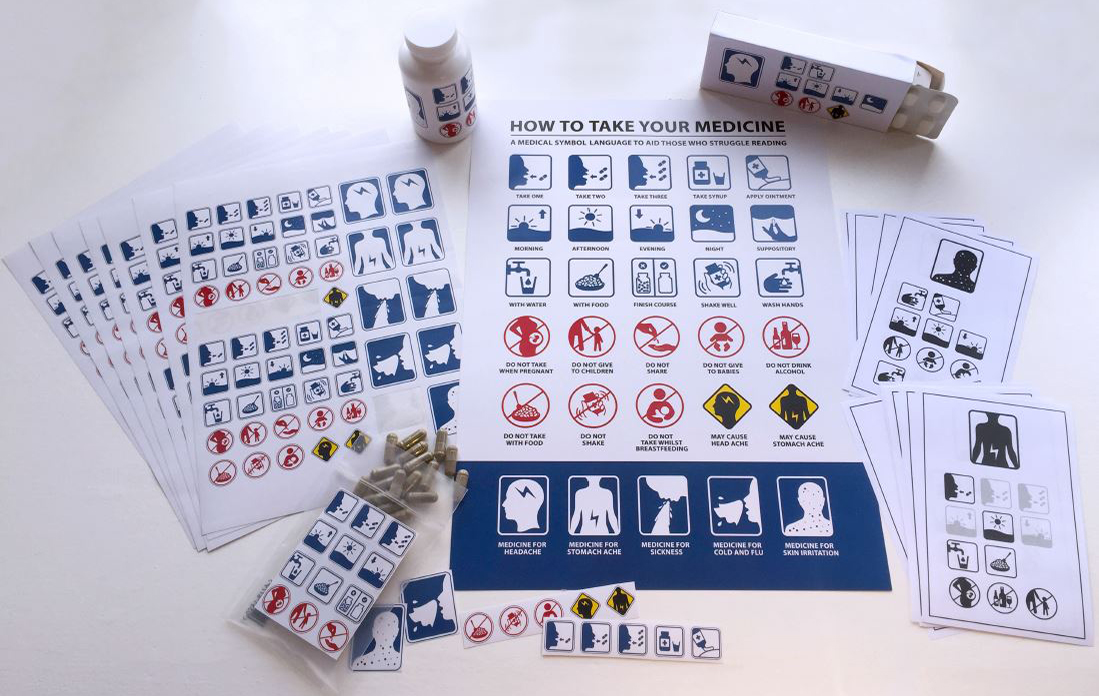
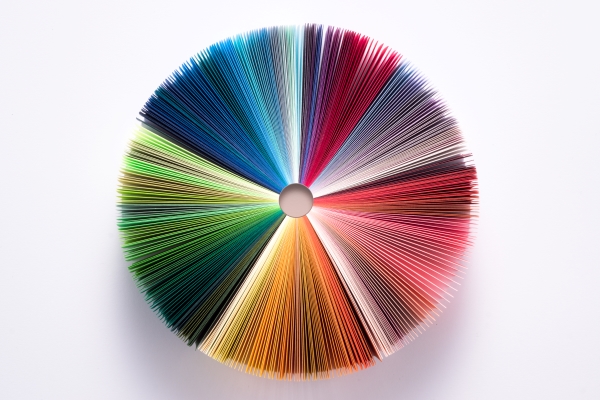
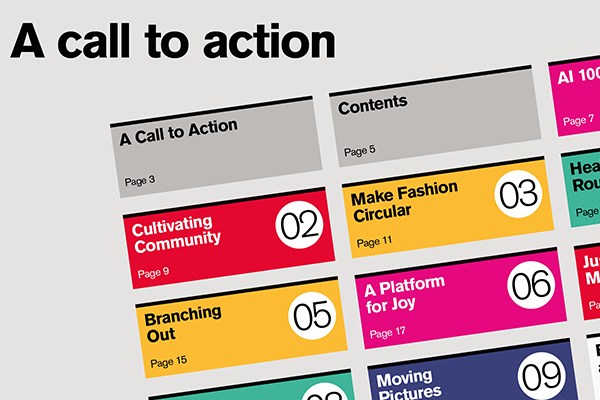

Join the discussion
Comments
Please login to post a comment or reply
Don't have an account? Click here to register.
What an inspiring list of ideas and applications to improve life locally and globally. Congratulations to all of those above.